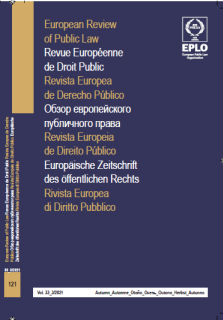
Administrative Law / Droit administratif
Ireland / Irlande
Associate Professor, Sutherland School of Law, University College Dublin
Over the last three years, the Irish Government has become concerned about the use of judicial review to challenge planning decisions; a perceived overuse of judicial review has come to be viewed as threatening the implementation of its housing construction programme. Three reforms, designed to reduce the incidence of judicial review, particularly in the area of planning and housing, have been proposed: (i) a proposal to heighten the threshold necessary to obtain leave for judicial review; (ii) a proposal to heighten the standard necessary to be regarded as having standing to take judicial review; and (iii) a proposal targeted at the conditional fee arrangement (the means by which much judicial review in Ireland is, in practice, funded). This article assesses the viability of these three proposals for procedural reform of judicial review.
Au cours des trois dernières années, le gouvernement irlandais s’est inquiété de l’utilisation du contrôle judiciaire pour contester les décisions d’urbanisme; un recours excessif au contrôle judiciaire a été perçu comme une menace pour la mise en œuvre de son programme de logement. Trois réformes, destinées à réduire l’incidence du contrôle judiciaire, en particulier dans le domaine de la planification et du logement, ont été proposées: i) une proposition visant à relever le seuil nécessaire pour l’obtention d’une autorisation de contrôle judiciaire; ii) une proposition visant à relever la norme nécessaire pour être considéré comme ayant qualité pour exercer un contrôle judiciaire; et iii) une proposition ciblant l’accord d’honoraires conditionnels (le moyen par lequel une grande partie du contrôle judiciaire en Irlande est, en pratique, financé). Cet article évalue ces trois propositions de réforme procédurale du contrôle juridictionnel.





















